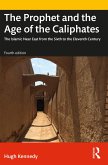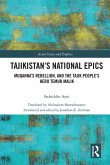The Saljuq period of the eleventh and twelfth centuries saw the arrival in Iran of Türkmen nomads from Central Asia and the beginning of Turkish rule. Through the example of the city of Isfahan, the book analyses the internal evolution of Iranian society in this period and the interaction of the Iranian elites and Turkish rulers.
Drawing on an analysis of a wide range of sources, including poetic and epistolary material, this study fills an historiographical gap and casts new light on the two centuries prior to the Mongol invasion. This comprehensive analytical study provides a new contribution to the understanding of many crucial issues: the cultural divide between Western and Eastern Iran; the military potential of city-dwellers; the attitude of the Turkish rulers toward cities and city life; the action of the famous vizier Nizam al-Mulk; the meaning of the Ismaili uprising; and above all the structure of the local elite, organized into rival networks and largely autonomous vis-à-vis state powers.
The study is enhanced by a variety of additional features, including extensive genealogical tables, Arabic script and maps. Providing a new understanding of the cultural identity of Iran, this book is an important contribution to the study of the history of Iran and the Medieval period.
Drawing on an analysis of a wide range of sources, including poetic and epistolary material, this study fills an historiographical gap and casts new light on the two centuries prior to the Mongol invasion. This comprehensive analytical study provides a new contribution to the understanding of many crucial issues: the cultural divide between Western and Eastern Iran; the military potential of city-dwellers; the attitude of the Turkish rulers toward cities and city life; the action of the famous vizier Nizam al-Mulk; the meaning of the Ismaili uprising; and above all the structure of the local elite, organized into rival networks and largely autonomous vis-à-vis state powers.
The study is enhanced by a variety of additional features, including extensive genealogical tables, Arabic script and maps. Providing a new understanding of the cultural identity of Iran, this book is an important contribution to the study of the history of Iran and the Medieval period.
"No other study of Seljuq Iran has ever attempted such a complex interweaving of imperial and local politics. Nor have previous efforts to analyze the factional rivalries that characterized Iranian urban life in the eleventh and twelfth centuries combined such detail about family and patronage structures with an equally detailed narrative of the relationship between these factions and the vagaries of dynastic politics... historians of Iran should embrace the complexity that the sources offer for their perusal. The eleventh and twelfth centuries were a period of pivotal change and crucial institutional development in the history of Islam, and Iran played a central role in this. Rather than looking for a tidy but unrealistic political narrative that might bridge the chaotic centuries between the waning of Abbasid power and the coming of the Mongols, historians should take Durand-Guédy's study as a guide to exploring the actual complexity of the era, and as a goad to doing so." - Richard Bulliet, Columbia University; Iranian Studies, 44:4, 590-592
"This work is a comprehensive account and impressive analysis of an era within a city which incorporates those invaluable extras, often abandoned or discarded before the final submission, namely copious appendices and author's notes, a chronology, a list of major players, a bibliography of original source-texts, a chapter-by-chapter synopsis, all of which warrant the appreciation of his research readers and are tools to aid deeper and fuller exploration of an area now very much on the academic map... This book is destined to become a classic and an indispensible tome for the study of pre-Mongol Iran... It can only be hoped that this very impressive and inspiring work by David Durand-Guery will provide the incentive and motivation for further scholarly endeavour." - George Lane, School of Oriental and African Studies, University of London, JRAS, Series 3 - Volume 20/4 - 2010
"Durand-Guédy's book reflects several significant trends in recent research on early Islamic History. One is the emphasis on regional and urban history, which gives us a much more nuanced and credible understanding of the dynamic, interactive, and pragmatic political life of the period than older world written from an "imperial" point of view. Moreover, recent scholars tend to take the broadest possible approach to source material, and Durand-Guédy likewise makes good use not just of the standard corpus of historical text but also an array of chronicles, narrative histories, geographies, biographical dictionaries, poetry, and documents... for specialists it will be a welcome and highly informative addition to the scholarly literature." - Elton L. Daniel, University of Hawai'i Manoa (The American Historical Review, April 2011)
"[T]here is no doubt as to the value and importance of this work. It is a major contribution to our understanding of the neglected Saljuq period and the mediaeval history of Iran more generally and sheds fresh light on many neglected or misunderstood issues while handling an impressive array of sources with dexterity. Every library collection encompassing the premodern Middle East should certainly acquire a copy." - A. C. S. Peacock, British Institute at Ankara; International Journal of Asian Studies, 8(1) (2011): 114-6
"This work is a comprehensive account and impressive analysis of an era within a city which incorporates those invaluable extras, often abandoned or discarded before the final submission, namely copious appendices and author's notes, a chronology, a list of major players, a bibliography of original source-texts, a chapter-by-chapter synopsis, all of which warrant the appreciation of his research readers and are tools to aid deeper and fuller exploration of an area now very much on the academic map... This book is destined to become a classic and an indispensible tome for the study of pre-Mongol Iran... It can only be hoped that this very impressive and inspiring work by David Durand-Guery will provide the incentive and motivation for further scholarly endeavour." - George Lane, School of Oriental and African Studies, University of London, JRAS, Series 3 - Volume 20/4 - 2010
"Durand-Guédy's book reflects several significant trends in recent research on early Islamic History. One is the emphasis on regional and urban history, which gives us a much more nuanced and credible understanding of the dynamic, interactive, and pragmatic political life of the period than older world written from an "imperial" point of view. Moreover, recent scholars tend to take the broadest possible approach to source material, and Durand-Guédy likewise makes good use not just of the standard corpus of historical text but also an array of chronicles, narrative histories, geographies, biographical dictionaries, poetry, and documents... for specialists it will be a welcome and highly informative addition to the scholarly literature." - Elton L. Daniel, University of Hawai'i Manoa (The American Historical Review, April 2011)
"[T]here is no doubt as to the value and importance of this work. It is a major contribution to our understanding of the neglected Saljuq period and the mediaeval history of Iran more generally and sheds fresh light on many neglected or misunderstood issues while handling an impressive array of sources with dexterity. Every library collection encompassing the premodern Middle East should certainly acquire a copy." - A. C. S. Peacock, British Institute at Ankara; International Journal of Asian Studies, 8(1) (2011): 114-6









